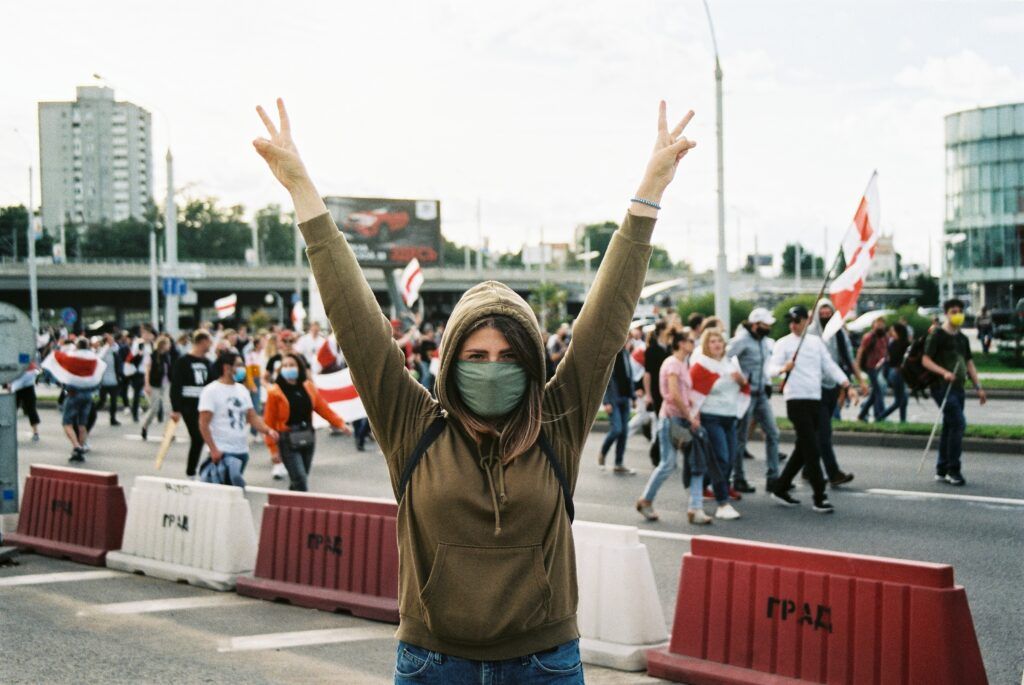Anna Radiukiewicz, Institute of Philosophy and Sociology, Polish Academy of Sciences

Understanding the Loss of Dignity
Of the challenges facing democracy today, a burning issue is the lack of dignity. Whether we speak of the dignity of individuals or of whole social groups (or even nations), public debate about dignity focuses more on the consequences of its absence, rather than why we lost it at all. A focus on the deleterious consequences that a lack of dignity entails inhibits policymakers and other stakeholders from addressing the root causes of the issue. These root causes are, of course, structural inequality and discrimination, among other factors.
Our need to feel significant, to be significant, is a basic human need. Social change and the reality of being “left behind” by the forces of globalization and capitalism drive both our need for significance and, for far too many of us, a sense that it has been lost (see the works of Robert Ford and Matthew Goodwin). Growth in relative deprivation, in loss of status, and in economic pressures make everyday people feel like the characters in Arlie Hochschild’s book Strangers in Their Own Land; people feel that they live in the places that “don’t matter” (as written by Andrés Rodríguez-Pose).
The concern for dignity is codified in many declarations of human rights and in the constitutions of states. All these codifications constitute a “promise of dignity” in which all human beings are equally welcome and valued as members of society based solely on who they are. This centrality of dignity and the expectation of it being honoured and respected by members of democratic societies is the impetus for an individual’s political involvement. To maintain a sense of dignity and self-respect, they vote in elections; they demand dignity by taking to the streets.
Why Dignity Erodes: Symbolic Boundaries in Civil Society
There are many ways and many reasons why people feel disrespected and are discriminated against, or stigmatised by individuals, institutions, and society at large. One of these diminishing means is language. In addition to insults that allow one to mark and defame, there are also aggrandising labels designed to distinguish between better and worse – and to bolster individual and political agendas.
“Civil society” may also play such an enhancing role that may ultimately be a primary means that restores our recognition and dignity, yet its misuse can also deprive us of dignity. The history of the notion of civil society is long and complicated, but clearly it has played a special role in Central and Eastern Europe. Firstly, it became an effective frame for collective mobilization against the State. Thus, civil society emerged as a word of choice even before 1989, including the “Solidarity” movement in Poland. Subsequently, the idea of “civil society” became a symbolic token of successful democratic transformation. Nowadays, being designated as a civil society is seen as a justification in the struggle for social change.
The Battle for Inclusion: Who Gets to Be ‘Civic’?
In Poland, being designated as “civil society” involves simplifications, generalizing judgments, or fixed clichés. They reveal classism, e.g., in reference to the so-called “demanding” agricultural movements and labour organizations. They reveal nationalism or anti-elitism, e.g., in reference to “non-Polish” organizations, or “financed with Soros’ money.” Symbolic segregation of civil society types serves to oppress political opponents while exposing the power of those who can typify and criticize. Such processes eliminate the meaning of “civil” that is the foundation of civility.
Democracy requires civil society to be built, supported, and protected. Crucially, it is also a common object of desire. Politicians and parties, NGOs and affiliated organizations, unions and their members, activists and social movements all want to deserve to be called civic. For many years, Poland has been the arena of symbolic clashes over who should cover themselves with the glorifying title of civil society, and who wears the shameful mantle of uncivil. Political polarization results from, and also feeds back upon, these increasingly fierce and extremely harmful struggles.
Real-world Impact of Symbolic Boundaries
Those who stay outside the boundaries of the “civic” community, or are on the margins of belonging, have been treated as less deserving of equal treatment and social support. These include older women from the countryside and young LGBTQI+ people from the cities.
Symbolic exclusion from civil society means an inability to participate fully in the public sphere. It means one cannot voice concerns, or fight for rights or convictions without feeling ashamed, embarrassed, or afraid. Inclusion within civil society provides a sense of agency. It creates a sense of dignity and self-respect that is essential for meaningful participation in democratic processes. It provides a core human need to feel and be significant.
Civil society is widely exploited by the undemocratic practices of symbolic inclusion and exclusion. Such exclusionary practices – classism, anti-elitism, and the negative aspects of nationalism, along with all-too-familiar inequalities of sexism and anti-LGBTQI+ sentiments – diminish the term civil in civil society.
And what happens when dignity recedes? A retreat from the collective space in which civil society grows and nurtures democracy into the private world. A private world in which isolated social groups fight over scarce resources, in which the privileged flourish, and in which democracy dies.

The need to restore dignity
While there have always been differences in societies, one of the most important challenges we face is to understand how we create symbolic boundaries and the social consequences of such actions (see the work of Michele Lamont). After all, the question of “who is civic” is fundamental to the development of society and to basic human needs. It impacts the status of people and their groupings and concerns within democratic society.
Fortunately, dignity can be restored by everyday people in democratic civil society. We can formulate and promote a meaning of civil society that is inclusive and not alienating in its implications – one that is democratic, and thus would restore and preserve human dignity.
Literature
Ford Robert, Matthew Goodwin, 2014, Revolt on the Right Explaining Support for the Radical Right in Britain, London: Routledge.
Hochschild Arlie Russell, 2016, Strangers in Their Own Land. Anger and Mourning on the American Right, New York: New Press.
Lamont Michèle, 1992, Money, Morals, and Manners: The Culture of the French and American Upper-Middle Class, Chicago: University of Chicago Press.
Rodríguez-Pose Andrés, 2018, The revenge of the places that don’t matter (and what to do about it), Cambridge Journal of Regions, Economy and Society, 11(1), s. 189–209.
Disclaimer: The views and opinions expressed in this blog post are those of the author(s) and do not necessarily reflect the official policy or position of the Graduate School for Social Research (GSSR). The publication of content on this blog does not imply endorsement or approval of the expressed views by GSSR.
